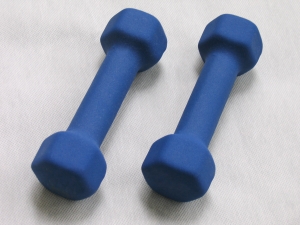Do the Elderly Make Better Jurors? How Pre-crastination Can Help You Pick a Better Jury
 There’s a new term that’s making the rounds, which might make us reconsider whether common wisdom is always wise and might make trial lawyers re-think how they select jurors: pre-crastination. As we’ll see, it means that maybe trial attorneys shouldn’t decide whether someone can be a good juror in spite of his old age and frailty, but because of them.
There’s a new term that’s making the rounds, which might make us reconsider whether common wisdom is always wise and might make trial lawyers re-think how they select jurors: pre-crastination. As we’ll see, it means that maybe trial attorneys shouldn’t decide whether someone can be a good juror in spite of his old age and frailty, but because of them.
Everyone’s heard of procrastination: Why do something today when it can wait until tomorrow? Most people procrastinate even though they know it’s not a good idea. There might be nothing more productive than the last minute but, when you’re counting down to a deadline, you always could use more time. The right thing to do, we all know, is to get it done now, right away, with time to spare. The only problem is that might lead us to make bad choices and irrational decisions.
We previously wrote about how older jurors might be a better fit for some cases. They generally have a wealth of knowledge and experience to draw from. It might take them a little longer to come to an answer, but that’s because of the large amount of information they have to process, not necessarily because they are becoming feeble minded. Maybe, if you can convince them, they can sway the other members of the jury for you. That, however, may not be the only reason to select an elderly juror.
New research suggests that the elderly may be better able to make judicious decisions because they can handle the mental effort involved in making those decisions better than younger, more able-bodied individuals. The research was published in Psychological Science, a journal of the Association for Psychological Science, and was conducted by study author, psychological scientist David Rosenbaum, and colleagues Lanyung Gong and Cory Adam Potts, of Pennsylvania State University. It was based on a series of seemingly simple experiments that show how physical limitations might benefit rational decision making.
Each experiment had the same basic premise: There were two heavy plastic beach buckets in a long alley; a group of college students lined up at one end and were asked to pick up whichever one they wanted and carry it to the other end of the alley. The rational decision, you would think, would be to pick up the bucket that was closest to the end so that you had to carry it the shortest distance. The large majority of the college students, surprisingly, did the opposite: They picked up the bucket that was closer to them even though that meant they had to carry the heavy load farther to get to the end line. The students’ explanation was simple: They wanted to get the task done as soon as possible. That simple answer, however, tells a lot about their priorities and how they make decisions.
Carrying around a mental to-do list takes work, according to the researchers. You have to keep it in your working memory; store and process it; keep it in the front of your mind while using it to complete the task. Needing to pick up one of the beach buckets might seem like an easy thing to remember. It was important enough, however, for the college students to want to get it done as quickly as possible, even if it meant having to physically work harder because they had to carry a heavy beach bucket farther. Relieving that mental stress was more important to the college students than decreasing their physical workload, even though the mental effort was relatively light and the physical effort heavy.
What would happen, though, if it wasn’t so easy to take on heavy physical work in order to off-load mental stress? You would probably have to take a closer look at a problem and analyze the options better, before making up your mind. An elderly person just might think twice about picking up the closer bucket just so he wouldn’t have to remember to pick up a bucket, especially if it meant carrying it farther. He would be much more likely to realize that it doesn’t matter so much when you start the task; it’s when, and how, you finish it that counts. According to the study’s author, David Rosenbaum, the findings could mean that, “Elderly or frail people may therefore have better memory management abilities than more able-bodied individuals.” To put it simply: they could make better decisions.
This is just another example of how thinking outside of the box, going against the grain, could pay off. It’s interesting research that led to interesting findings that could lead to better decisions by trial lawyers, and juries, alike.
Go raibh maith agat.
Ray Grasing
 New York Business Lawyer Blog
New York Business Lawyer Blog

